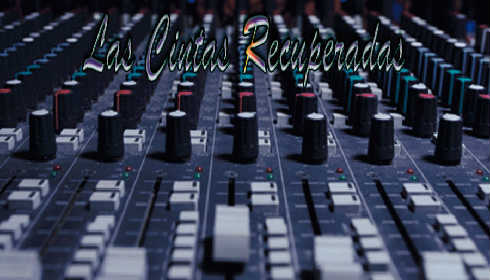01.Tico Tico No Fubá (2:52)
03.Corcovado (From Saudades Do Brasil) (2:04)
04.Manha De Carnaval (4:13)
05.Tristeza (4:02)
06.Pedacinhos Do Céu (4:30)
07.Bachianas Brazileiras No. 5 (5:20)
08.Wave (4:36)
09.Avarandado (3:49)
10.Sumaré (From Saudades Do Brasil) (2:31)
11.Aquarela Do Brasil (3:43)
12.Song Of The Sabiá (4:40)
13.Brazilian Rhapsody (3:02)
14.Eu Sei Que Vou Te Amar (4:45)
15.Bahia (5:27).
Review
On this splendid recording, the Argentinean pianist-conductor Daniel Barenboim extends the thin line between Brazilian popular and classical music. He's joined by bassist Robert Kassinger, violinist Nikolaj Znaider, flutist Emmanuel Pahud, oboist Alex Klein, clarinetist Larry Combs, and Brazilian percussionist Cyro Baptista. They skillfully meld American jazz, classical genres, Portuguese choros, and African-derived sambas into a New World sound. Barenboim's piano lines are furious on the title track and florid on his Debussyan solo renditions of Darius Milhaud's "Corcovado" and "Sumaré" from Saudades do Brasil. Antonio Carlos Jobim reshaped the samba into the cool bossa nova, and this album's version of "Wave" reveals his melodic genius. The phenomenal singer and songwriter Milton Nascimento provides the high point of the CD, with his angelic tenor on his ebullient ballad "Travessia." Powered by Baptista's hypnotic caxixis and cuicas and guided by Barenboim's wide artistic vision, the sounds on this disc reveal the past, present, and future of Brazilian music. --Eugene Holley Jr.
Review
I have always enjoyed the interpretations of Daniel Baremboim from the time I first heard his recording of the Schubert impromptus when I was I teen-ager. In the mid 90's Baremboim started to record less traditional forms of Classical music (I least I consider it classical) such as the Tango. And what a wonderful result he has achieved. As a geographically logical next step, baremboim has made a Bossa Nova album. Bossa Nova is one of my favorite styles on its own. Combined with the approach of a classical pianist who revels in the music of Beethoven and Schubert, the music adopts a slightly different but equally enjoyable sound. More than Bossa Nova the album features a beautiful interpretation of a classical piece by Hector Villa Lobos (Bachianas Brasileiras no. 5) which is normally interpreted by a soprano (it's Brasil's answer to Rachmaninov's Vocalise). Perhaps, due to the surprise on the simple and poignant beauty of the melody, I think this piece alone is worth buying the album for. I was especially lucky as I received this as an unexpected gift from someone who grasped my tastes very well from my prefrences on Amazon, for which I am always grateful. Muito Obrigado.
Biography
Daniel Barenboim, born in Buenos Aires in 1942, started piano lessons at the age of five and gave his first official concert in 1950. He made his debut as a pianist in Vienna and Rome in 1952. In 1954, he took part in Igor Markevitch’s conducting classes in Salzburg and played for Wilhelm Furtwängler, who described him as ‘a phenomenon’. In 1955 he studied with Nadia Boulanger in Paris.
On this splendid recording, the Argentinean pianist-conductor Daniel Barenboim extends the thin line between Brazilian popular and classical music. He's joined by bassist Robert Kassinger, violinist Nikolaj Znaider, flutist Emmanuel Pahud, oboist Alex Klein, clarinetist Larry Combs, and Brazilian percussionist Cyro Baptista. They skillfully meld American jazz, classical genres, Portuguese choros, and African-derived sambas into a New World sound. Barenboim's piano lines are furious on the title track and florid on his Debussyan solo renditions of Darius Milhaud's "Corcovado" and "Sumaré" from Saudades do Brasil. Antonio Carlos Jobim reshaped the samba into the cool bossa nova, and this album's version of "Wave" reveals his melodic genius. The phenomenal singer and songwriter Milton Nascimento provides the high point of the CD, with his angelic tenor on his ebullient ballad "Travessia." Powered by Baptista's hypnotic caxixis and cuicas and guided by Barenboim's wide artistic vision, the sounds on this disc reveal the past, present, and future of Brazilian music. --Eugene Holley Jr.
Review
I have always enjoyed the interpretations of Daniel Baremboim from the time I first heard his recording of the Schubert impromptus when I was I teen-ager. In the mid 90's Baremboim started to record less traditional forms of Classical music (I least I consider it classical) such as the Tango. And what a wonderful result he has achieved. As a geographically logical next step, baremboim has made a Bossa Nova album. Bossa Nova is one of my favorite styles on its own. Combined with the approach of a classical pianist who revels in the music of Beethoven and Schubert, the music adopts a slightly different but equally enjoyable sound. More than Bossa Nova the album features a beautiful interpretation of a classical piece by Hector Villa Lobos (Bachianas Brasileiras no. 5) which is normally interpreted by a soprano (it's Brasil's answer to Rachmaninov's Vocalise). Perhaps, due to the surprise on the simple and poignant beauty of the melody, I think this piece alone is worth buying the album for. I was especially lucky as I received this as an unexpected gift from someone who grasped my tastes very well from my prefrences on Amazon, for which I am always grateful. Muito Obrigado.
Biography
Daniel Barenboim, born in Buenos Aires in 1942, started piano lessons at the age of five and gave his first official concert in 1950. He made his debut as a pianist in Vienna and Rome in 1952. In 1954, he took part in Igor Markevitch’s conducting classes in Salzburg and played for Wilhelm Furtwängler, who described him as ‘a phenomenon’. In 1955 he studied with Nadia Boulanger in Paris.


No comments:
Post a Comment